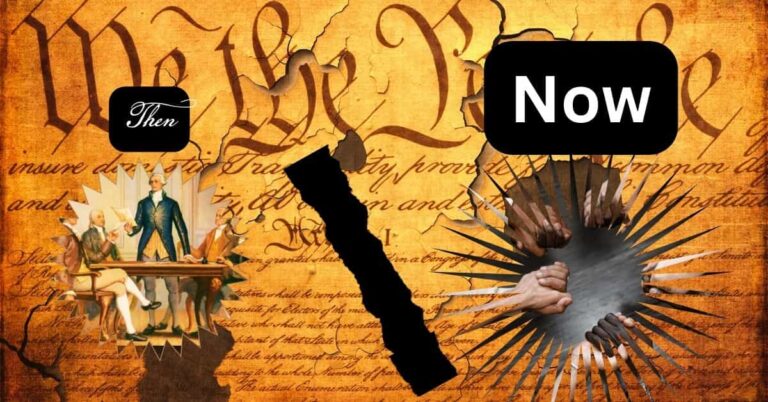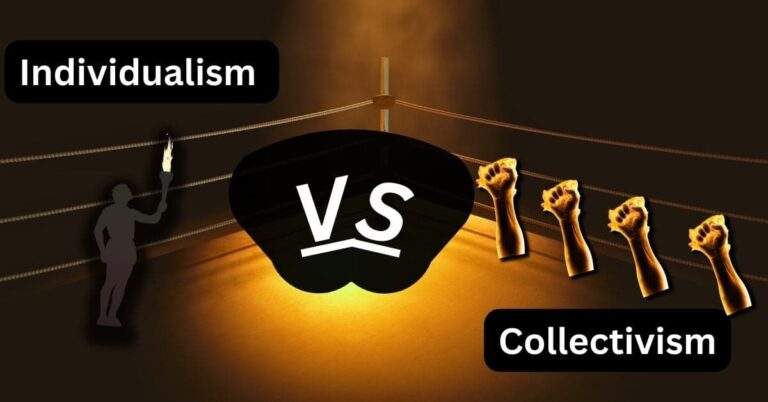Would you give absolute control over to the government because you hastily close your front door one morning due to a spying drone? Ben Franklin would tell you to open your front door and face the drone threat.
Ben Franklin’s essential liberty quote is a no-compromise saying to NOT give up your liberty because of fear. Fear is an emotion that hinders your overall perception of situations. Franklin warns of your tendency to choose a temporary solution versus the long-term effects of your rushed decision.
His famous quote is below for us to explore further meaning.
Those who would give up essential Liberty, to purchase a little temporary Safety, deserve neither Liberty nor Safety.
Benjamin Franklin
Quote in Context
Bold “liberty haters” misuse Ben Franklin’s quote to promote more control. That misuse gives more inspiration to people like me to explore the quote in a historical context.
I have seen this quote plastered on front yard signs, billboards along interstates, and even on bumper stickers. There is no doubt that this is a popular founder liberty saying.
This quote has gained popularity over the years with overreaching matters sparked by government creation of the National Security Agency (NSA), the Patriot Act, and unnecessary government-imposed mandates. The linguistic meaning of those fancy-sounding government names is anything but “Patriotic” when the US government can spy on their citizens in the name of safety.
What is “essential liberty”?
Merriam Webster refers to “essential” as inherent or something basic. This means that whatever is “essential” CAN’T be compromised. In this case, liberty is essential and should not be given up.
Related Articles
• Learn more about the basics of the Declaration of Independence.
• Firearms provide security against a tyrannical government. LEARN MORE about life without the 2nd Amendment.
Even Thomas Jefferson writes in the Declaration of Independence that:
“Prudence, indeed, will dictate that Governments long established should not be changed for light and transient causes.”
Thomas Jefferson
We can relate Jefferson’s quote to “essential liberties.” We should not give up “essential liberties” for insignificant changes in perception or temporary impending doom because situations aren’t as bad as they appear. I know you can remember instances where you worried for those dire fears to never come true.
What constitutes “temporary safety”?

Temporary safety is exactly that. It is building a mansion -except it is a tent mansion- that can’t stand up to the harshest elements that nature throws at it. The tent will be blown down by the “big bad wolf” of overbearing government regulation in the name of that safety.
Your temporary safety is now permanent. To rid yourself of that new tyranny, strong lobbying and political engagement are necessary to enjoy the freedoms that you had before this new “little rule” that was imposed.
Franklin’s Personality
Let’s explore Franklin’s personality to see what the quote would have meant.
He needs no introduction. You stare at him every time that you have a “Benjamin” in your hand ($100).
Franklin’s eccentric personality published Poor Richard’s Almanack starting in 1733. This almanac gave all sorts of life advice with new annual editions for many years. He included quotes that can further define his liberty versus safety stance.
Some examples are the following:
- “He that’s secure is not safe.”
- “The Way to be safe, is never to be secure.”
After having a successful printing business, Franklin retired at 42 to explore more gentlemanly ideas such as scientific experimentation or to discuss the issues of the time. He gave up the security of leaving his established business and substantial income.
However, that loss of financial security worked out for him when his electricity experiments garnered him international fame.
Franklin knew that you could never have 100% safety. In the modern era, most products are guaranteed to 99.9%. You never know when that 0.1 % might come to try to find you.
Ben Franklin’s Meaning
Ben Franklin’s quote came from a letter written to the presiding Pennsylvania Governor Morris in the Fall of 1755. Native Americans attacked pioneers on the Pennsylvania frontier, and the pioneers needed a defense. You can find the original letter here.
Paying for the defense became the quarrel between Governor Morris and Benjamin Franklin. 2/3s of the letter discussed a tax on proprietary estates along the fronter to fund the building of protective outposts. Governor Morris did not want Penn’s estate included in the new tax bill.
The name Penn should sound familiar. William Penn was the strong political figure who received the first royal charter for the now Pennsylvania area. There have been references to the Penn family trying to pay a lump sum of cash to pay off the Franklin lead Pennsylvania legislature’s new tax.
They wanted to buy temporary safety with cash. However, paying a lump sum of cash to the government to avoid the tax is corruption. No special exemptions should be made because of political connections. Everyone has equality before the law. Everyone has more liberty when everyone is equal under the law without special exemptions because of political affiliations.
Some other interpretations state that Franklin is referring to the tax as “collective security,” which goes against the essential liberty mentioned in the exact quote. The “collective security” were the pioneers’ interests over the politically connected Penn’s. Some argue that democracy has little respect for individual freedom making freedom a feature of certified majorities, or the collective.
In this case, the individuals were the Penns and the mob could be considered the pioneers on the frontier (Team Colonists vs. the Penn family).

How can a quote specifically mentioning essential individual liberty represent a collective quote about safety? That is like saying that “I’m not thirsty,” but then taking a sip of water.
People were panicking about the frontier raids, but the current and past Penn-influenced Quaker policy of pacifism was not working.
There needed to be action. This is not a matter of the collective over the individual but political corruption trying to circumvent their own government.
In the same paragraph as the quote, Franklin alluded that some colonists wanted to defend themselves through past funds given to them when he stated, “such as were inclined to defend themselves.” The individual pioneers had the will to defend themselves, but the Penn family-influenced government restricted the ability of the colonists to protect themselves.
The King of Great Britain would only credit so much money before the question was raised as to why the raids hadn’t stopped. Also, the taxes continually raised for defense put the colonist further into financial debt to the British crown. 18th century Britain’s benevolence is overrated.
The real failure was the pacifist policy to delay the inevitable instead of preventing the raids to begin with either through deterrence or a better understanding of Native American culture through diplomacy.
Historical Context of Pennsylvania Situation:
Penn’s Massacre was the historical event that instigated Franklin’s letter. This massacre became the rallying cry for much-needed improvements to defense.
On October 16, 1755, Native Americans raided small pioneer homesteads. 14 pioneers were murdered during the raids because they were unable to defend themselves. Self-defense or prevention weren’t attributes of Quaker Native American diplomacy.
There were instants of Native Americans acting friendly while smoking a pipe with homesteaders before killing and scalping them. Native Americans took pioneers as prisoners later turning them into slaves.
Homesteaders came crowding into Philadelphia demanding action for the colonial government to act because the Penn-influenced government had not done its job of protecting its citizens. This was not a matter of temporary safety but of longevity for the pioneers.
You aren’t purchasing temporary safety or giving liberty when your government is corrupt to demand that they do one of the primary functions of government- protect private property.
The result of the movement was the Militia Act of 1755 authorizing a voluntary militia for the defense of Pennsylvania.
Conclusion
Ben Franklin’s quote reminds you to look at the long-term effects of your decisions.
The Penn’s pacifist policies didn’t work. The government hadn’t done its job of maintaining the pioneer’s “essential liberty” of protecting private property rights. Pioneers petitioned the government to do its job. They didn’t want the Penn lead government trying to purchase a little temporary safety either through political corruption or appeasement.
They wanted the liberty to individually protect themselves and abolish the Penn corrupt policies.
While the quote can be confusing to read and understand in the 1755 letter, Ben Franklin would choose liberty over safety every day.
Remember, Franklin supported the British in 1755 but later signed his safety away in the 1776 Declaration of Independence directed to his former ally (the British).
I choose liberty over safety. What do you choose?
J. Liberty
Related Articles About Security:
• Who protects our rights: “We the People” or the Government? LEARN MORE in my article as I discuss rights and freedom
• Gun control affects your security. LEARN MORE as I dissect a gun control’s advocate dream of ultimate public safety.




Leave a Comment